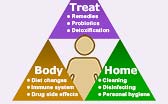What Your Doctor Isn't Telling You about C. Diff.

Most doctors are doing the best job they can. And for serious infections, being under the care of a good doctor is crucial, regardless of what treatments you choose to use. But it's important to understand the pressures and limitations placed on doctors by the system. These limitations are not always obvious and they can keep you from getting the quality of healthcare you deserve.
Below are 5 things your doctor probably isn’t telling you about your C. diff. (Clostridium difficile) treatments and the healthcare you are receiving.
1. "You’re getting the standard protocol treatments, not what's necessarily best for you"
Doctors are forced by insurance companies to cut costs by prescribing generic "one-size-fits-all" treatments as much as possible. Most physicians are also under time constraints and prescribing "standard protocol" treatments saves time and reduces the risk of malpractice lawsuits.
Many general physicians are inexperienced with C. difficile treatment, testing and complications. There are also different schools of thought in the medical would about dealing with C. diff. Also, most medical doctors don't know about important antibiotic alternatives because they are never taught about them in medical school. Even infection specialists, such as infectious disease (ID) doctors, have no training in complementary and alternative medicine.
Knowing the pitfalls of the healthcare system is important to avoid time-wasting mistakes and get the right treatment faster. Asking your doctor questions about C. diff. testing and antibiotic choices and side effects are crucial, especially if you are frustrated with your doctor or your treatment results.
2. "Antibiotics can be risky drugs with many negative side effects"
Antibiotics can be life-saving drugs, but it's important to use them properly, safely and only if really needed. There are many potential risks when taking these drugs, especially if you have a history of C. diff. infections. Unfortunately, many doctor's don't bother to tell their patients about these risks and side effects of the drugs they prescribe.
Fortunately, the majority of people who take antibiotics for C. diff. treatment have success with these treatments. But one third of people end up with recurring C. difficile and have trouble making it go away. The biggest drawback of antibiotics is that they kill off the beneficial bacteria in your gut, increasing the risk of future C. diff. infections.
The side effects of some antibiotics (especially fluoroquinolones) are greater than you may realize. Antibiotics cause nearly 20% of all emergency room visits due to drug reactions. If you take antibiotics, then also use techniques to counteract the negative side effects of these powerful drugs. An unfortunate side effect of antibiotics is how they can weaken your immune system, making you more prone to catching secondary yeast, viral and bacterial infections.
If you use antibiotics, it’s important to rebuild your immune system afterward to help ward off more infections later. There are techniques to reduce this little-known risk, such as immune supporting diet changes and supplements.
3. "Washing your hands and common cleaning methods may be doing more harm than good"
Washing your hands is an important way to prevent the spread of C. diff. However, a very popular kind of soap can weaken your immune system and cause antibiotic resistance to spread.
New studies show that antibacterial soaps and products can cause more harm than good. These products kill many of the healthy and protective bacteria on your skin that help keep you safe from disease-causing germs. Antibacterial ingredients are also linked to creating antibiotic resistant superbugs including MRSA, CRE and others. Importantly, hand washing and normal disinfecting products will NOT kill C. diff. spores and can actually spread them around, increasing the risk of others becoming infected.
C. diff. is a "hard nut to crack" when it comes to cleaning and disinfecting. Only a few disinfectants can kill C. diff. spores and they must be used properly to be effective. However, these products are toxic and should only be used on high-risk surfaces to limit your exposure.
Unfortunately, few doctors know the best disinfecting practices for C. difficile. Learning how to disinfect properly is an important way to protect others from C. diff. and prevent recurring infections. And disinfecting improperly exposes you to toxic chemicals that weaken your immune system.
4. "Foods you're eating right now are making your infection grow worse"
Finding foods that don't aggravate the colon or cause symptoms to worsen is a big challenge for many C. diff. sufferers. These so-called "problem foods" can vary from person to person and are often identified by time-consuming trial and error. Limited food choices can make it hard to get the proper nutrition which is so important for the immune system.
What is not commonly known is that some common foods that seem safe and well-tolerated can actually cause more harm than good in the long run. Also, there are new ways to prepare certain "problem foods" to make them easier to digest and increase nutrient absorption.
5. "Recurring infections are big risk"
As mentioned above, antibiotics can stop most C. diff. infections but they can also increase the risk of future episodes of C. diff. and recurrent infections. Relying on these standard treatments is therefore a short-term solution at best.
Washing your hands, disinfecting and steering clear of antibiotics can reduce the risk of recurring C. diff. But few doctors are aware of several methods to ward off reinfections with immune support supplements, science-based alternative remedies and new household bacteria control methods.
Related Topics
Photo credits: doctor, antibiotic pills and PC ©Yuri, ©ftwitty and ©sweetym iStockPhoto.com, remedy capsules ©Melpomene Fotolia.com





